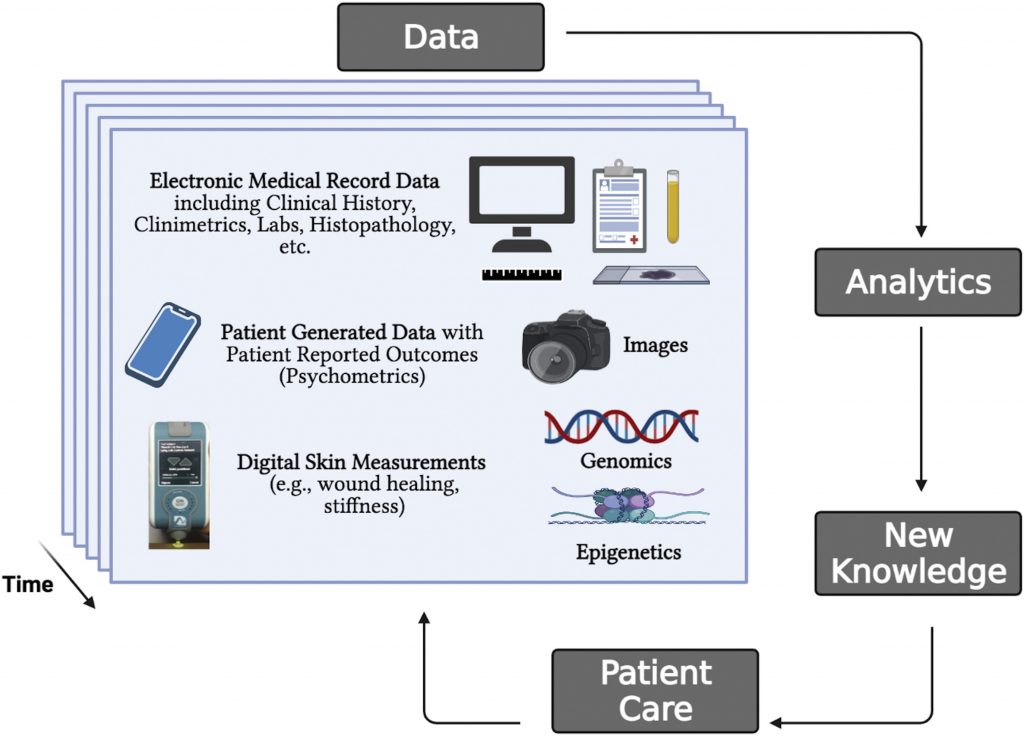Publications

Expanding Personalized, Data-Driven Dermatology: Leveraging Digital Health Technology and Machine Learning to Improve Patient Outcomes
Authors: Shannon Wongvibulsin 1, 2, Tracy M. Frech 3, 4, Mary-Margaret Chren 5, Eric R. Tkaczyk 4, 6
Affiliations:
- Department of Dermatology, Johns Hopkins University School of Medicine, Baltimore, MD, USA
- Department of Medicine, University of Pittsburgh Medical Center, Pittsburgh, PA, USA
- Department of Internal Medicine Rheumatology and Immunology, Vanderbilt University Medical Center, Nashville, TN, USA
- Tennessee Valley Healthcare System, Department of Veterans Affairs, Nashville, TN, USA
- Department of Dermatology, Vanderbilt University Medical Center, Nashville, TN, USA
- Department of Biomedical Engineering, Vanderbilt University, Nashville, TN, USA
Journal: JID Innovations - May 2022, Volume 2, Issue 3, Article no. 100105 (DOI: 10.1016/j.xjidi.2022.100105)
-
Field & Applications:
- Medical
- Skin / Dermatology
The current revolution of digital health technology and machine learning offers enormous potential to improve patient care. Nevertheless, it is essential to recognize that dermatology requires an approach different from other specialties.
For many dermatological conditions, there is a lack of standardized methodology for quantitatively tracking disease progression and treatment response (clinimetrics). Furthermore, dermatological diseases impact patients in complex ways, some of which can be measured only through patient reports (psychometrics).
New tools using digital health technology (e.g., smartphone applications, wearable devices) can aid in capturing both clinimetric and psychometric variables over time. With these data, machine learning can inform efforts to improve healthcare by, for example, the identification of high-risk patient groups, optimization of treatment strategies, and prediction of disease outcomes. We use the term personalized, data-driven dermatology, to refer to the use of comprehensive data to inform individual patient care and improve patient outcomes.
Here, we provide a framework that includes data from multiple sources, leverages digital health technology, and uses machine learning. Although this framework is applicable broadly to dermatological conditions, we use the example of a serious inflammatory skin condition, chronic cutaneous graft-versus-host disease (cGVHD), to illustrate personalized, data-driven dermatology.

Figure 1. Framework for Personalized, Data-Driven Dermatology
Overall, personalized, data-driven dermatology has the potential to provide a more comprehensive understanding of skin conditions at the individual level and improve patient outcomes.


